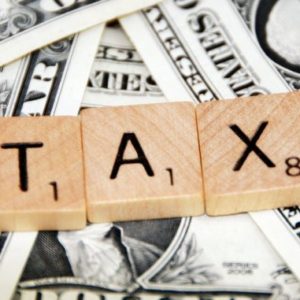How do Democrats in a state without any income taxes find a way to force residents to pay more income taxes?
They get the federal government to collect them.
State Rep. David Luneau (D-Hopkinton), the ranking Democrat on the New Hampshire House Education Funding Committee, is among the sponsors of a bill to amend the current Education Freedom Account (EFA) law. They want to eliminate the portion that says EFA “funds shall not constitute taxable income to the parent of the education freedom account student.”
Their bill would also require “the timely delivery of IRS 1099 forms to parties responsible for tax liabilities incurred from payments made from an education freedom account.”
The EFA program currently allows people making up to 350 percent of the federal poverty level to use the state’s portion of their child’s K-12 education funding for alternatives other than the public school they are zoned for. The program is administered by the Children’s Scholarship Fund.
Luneau is an outspoken opponent of the EFA program, and Democratic leaders in both the House and Senate have denounced it, claiming without evidence that it takes funding from public schools.
The bill’s goal appears to be to declare the state money families receive to fund education spending as income, even though it’s the same state money that would have otherwise gone to a government-run school.
However, the federal government determines what monies are income for the purposes of federal taxes, regardless of declarations by the individual states.
Then there’s the fact that, thanks to the phase-out of the interest and dividends tax on New Year’s Day, New Hampshire no longer has any personal income tax. So, even if Democrats could get GOP support to pass the bill, critics note, it wouldn’t create any tax revenue for the Granite State.
”The ongoing disdain for families seeking educational options to better serve their children has become an obsession for some,” said New Hampshire Commissioner of Education Frank Edelblut. “If the representatives proposing this legislation believe that the cost of public education should be taxed to the families receiving the benefit, that would also apply to the families who voted last week to fund $33,000 per student.”
At a Kearsarge Regional School District meeting last week, attendees overwhelmingly voted down a proposed $27,000 per student cap on spending, instead supporting the current $33,000 per pupil budget.
Rep. Glenn Cordelli (R-Peterborough) echoed Edelblut’s point that the legislation targets not private schools or education providers, but parents themselves.
“I don’t understand it,” he told NHJournal. “It’s certainly not an attack on the program I would expect from the Democrats. Instead, it is an attack on every family that is just trying to get the education their child needs to succeed. Why?”
NHJournal reached out to Luneau and other sponsors of the bill Sunday evening, but has not received a response.
Around 5,000 New Hampshire students are using the EFAs, while 165,000 are currently enrolled in public schools. And while critics of the program complain about the $24.8 million that went to EFAs in the 2023-24 school year, total K-12 expenditures for the 2022-2023 school year were more than $3.8 billion.





